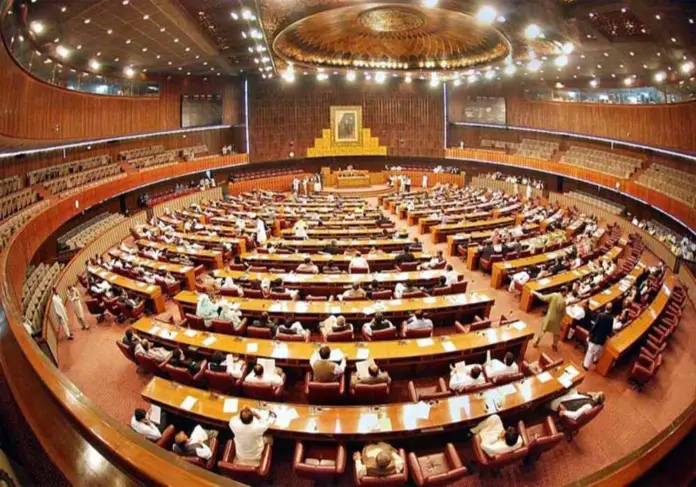The National Assembly examined the performance and operation of the judiciary for the second day in a row after learning that more than 380,000 cases were pending before the Supreme Court and all five of the country’s high courts.
The lawmakers also voiced their opposition to the government’s decision to remove the textile industry’s subsidy on the power tariff by IMF requirements on alternate private member’s day.
Both of these topics came up for discussion during Question Hour, and lawmakers—who had previously criticized the judiciary during Monday’s session when the controversial bill restricting the chief justice of Pakistan’s (CJP) suo motu authority was passed—again spent a lot of time talking about the causes of the nation’s massive backlog of cases, which is problematic for defendants and the general public.
According to Minister of State for Law and Justice Shahadat Awan, the judiciary’s failure to occupy open positions in all courts is one of the causes of this significant congestion.
In answer to a question from Pakistan Tehreek-e-Insaf (PTI) dissident Nuzhat Pathan, the minister informed the assembly that 38 judge posts were currently open while a total of 380,436 cases were still pending in the higher courts as of December 31, 2022.
The minister gave a breakdown to the lower house of the parliament, noting that there were 51,744 cases overall that were pending before the SC and that three judgeships had been left unfilled for an extended period.
Similarly, the data indicates that 179,425 cases were still pending before the Lahore High Court, even though there are currently 19 open judgeships out of a sanctioned number of 60.
The Peshawar High Court has 41,911 open cases, compared to 4,198 and 17,104 cases backlogged at the Balochistan High Court and Islamabad High Court, respectively.
The Sindh High Court, which also lacks 11 judges, had up to 85,781 cases that were still unresolved.







